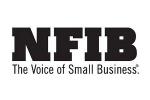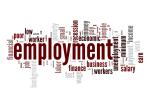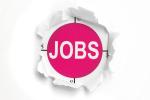WASHNGTON — The National Federation of Independent Business (NFIB) Small Business Optimism Index rose 0.5 points in August to 100.8, nearly 3 points above the 52-year average of 98.
The Uncertainty Index fell by 4 points to 93 but remained well above the historical average. The decline, the NFIB says, was due to a decrease in uncertainty about financing expectations and planned capital expenditures.
“Optimism increased slightly in August with more owners reporting stronger sales expectations and improved earnings,” says NFIB Chief Economist Bill Dunkelberg. “While owners have cited an improvement in overall business health, labor quality remained the top issue on Main Street.”
In its monthly jobs report, the NFIB found that a seasonally adjusted 32% of all small-business owners reported job openings they could not fill in August, down 1 point from July. The last time unfilled job openings fell below 32% was in July 2020.
A seasonally adjusted net 15% of owners plan to create new jobs in the next three months, up 1 point from July and the third consecutive monthly increase, a positive trend, the NFIB says, but historically low.
Of the 53% of owners hiring or trying to hire in August, 81% reported few or no qualified applicants for the positions they were trying to fill. Twenty-six percent of owners reported few qualified applicants for their open positions (down 3 points), and 17% reported none (down 2 points).
In August, 21% of small-business owners cited labor quality as their single most important problem, unchanged from July. Labor costs reported as the single most important problem for business owners fell 1 point from July to 8%.
Seasonally adjusted, a net 29% reported raising compensation, up 2 points from July. A seasonally adjusted net 20% plan to raise compensation in the next three months, up three points from July.
Fifty-six percent of small-business owners reported capital outlays in the last six months, up 1 point from July, the NFIB says, but remaining historically low.
A net negative 9% of all owners (seasonally adjusted) reported higher nominal sales in the past three months, unchanged from July.
More than half (54%) of small-business owners reported that supply chain disruptions were affecting their business to some degree, down 10 points from July.
Looking forward to the next three months, seasonally adjusted, a net 26% plan to increase prices, down 2 points from July. The net percent of owners raising average selling prices fell 3 points from July to a net 21%, seasonally adjusted, the lowest reading of this year.
Eleven percent of owners reported that inflation was their single most important problem in operating their business (higher input costs), unchanged for the third consecutive month.
The net percentage of owners expecting better business conditions fell 2 points from July to a net 34% (seasonally adjusted). In August, 14% (seasonally adjusted) reported that it is a good time to expand their business, down 2 points from July.
Seventeen percent of small-business owners reported taxes as their single most important problem, unchanged from July and ranking as the second top problem. The share reporting government regulations and red tape as their single most important problem rose 1 point to 9%. Five percent reported competition from large businesses as their single most important problem, down 1 point from July.
The NFIB Research Center has collected small-business economic trends data with quarterly surveys since 1973 and monthly surveys since 1986. Survey respondents are randomly drawn from the NFIB’s membership.
Have a question or comment? E-mail our editor Dave Davis at [email protected].































































